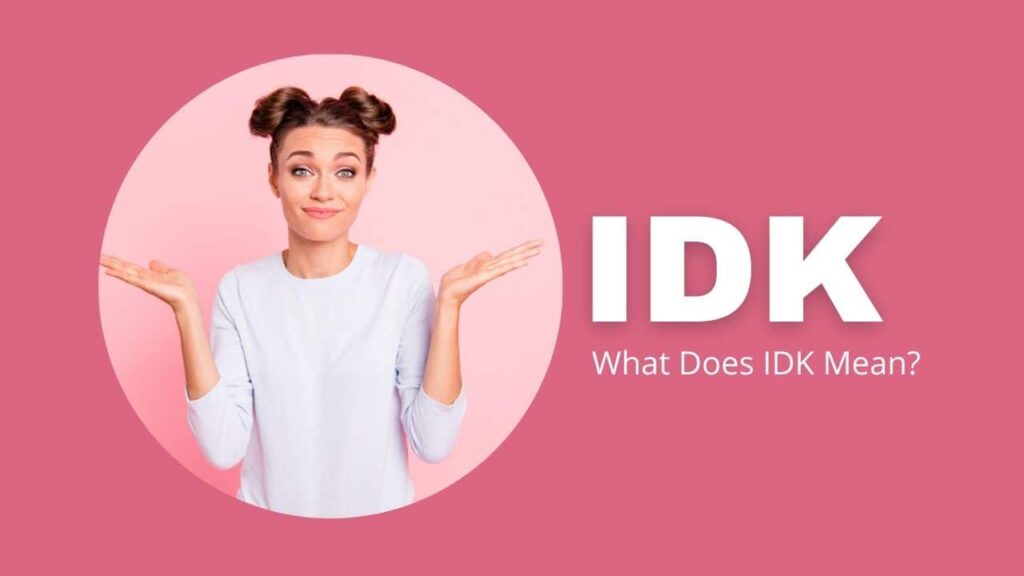
“idk” is an abbreviation for “I don’t know.” It is often used in informal or casual communication, such as text messaging or online chats.
I don’t know” (idk) is a phrase that is used to indicate that the speaker or writer is uncertain or lacks knowledge about a particular topic or question. It is often used as a response to a question when the person being asked does not have an answer or is unsure of what to say. It is a way of acknowledging that the person does not have the information or knowledge requested.
In informal communication, like text messaging or instant messaging, people often use abbreviations or shorthand to save time and space. idk is one such shorthand, meaning “I don’t know” in text language.
In any conversation, it’s important to be aware of the context, tone, and audience. “idk” should be used sparingly when communicating professionally or in formal settings, as it might signal a lack of preparation or knowledge. Whereas, in casual conversation with friends and family, it is more acceptable to use idk more often.
In short, idk is a common phrase that is often used when someone does not have an answer to a question or is uncertain about something. It’s an informal way to acknowledge that you don’t have the information and requesting more information or clarification.
How to use ‘idk’
“idk” is an acronym that stands for “I don’t know.” It is often used in informal or casual communication, such as text messaging or online chats. Here are a few ways to use “idk” in conversation:
- As a response to a question: When someone asks you a question and you don’t know the answer, you can reply with “idk.” For example, “What’s the capital of France?” “idk.”
- To express uncertainty: You can use “idk” to express uncertainty or doubt about something. For example, “I’m not sure what time the movie starts, idk.”
- To request more information or clarification: You can use “idk” to indicate that you need more information or clarification. For example, “idk what you mean by that, could you explain it to me?”
It’s important to keep in mind that while idk is common in informal or casual communication, it might not be suitable for professional or formal settings, as it might signal a lack of preparation or knowledge. It’s always best to know the context, tone, and audience before using idk.









